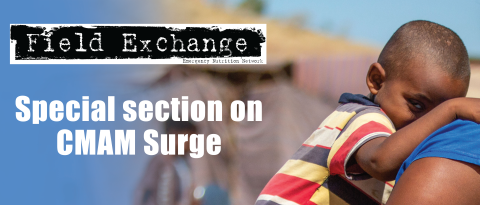Men's Nutrition Knowledge is Important for Women's and Children's Nutrition in Ethiopia
Research Snapshot1
Many nutrition-sensitive agriculture programmes focus on women as an entry point to effect positive household nutrition outcomes by improving their nutrition knowledge and empowering them to make decisions around food purchases and the allocation of nutritious food in the household. Despite the central role of men, very few programmes have explored the potential impact of men's engagement in household nutrition, including diets and the nutritional status of women. By default, men have been mostly left out of the design and implementation of these programmes. Using data from a cluster randomised trial in Ethiopia known as ‘Agriculture to Nutrition’, associations between men’s and women’s nutritional knowledge on the dietary diversity of households, children and women were explored, as well as specific components of nutrition knowledge that had the highest effect size on nutrition outcomes.
The Food and Agriculture Organisation (FAO)'s nutrition knowledge, attitudes and practice questionnaire was administered to men and women in 1,396 households. Four knowledge variables were examined: good nutrition for pregnant/lactating women, diets for children, vitamin A rich foods and iron-rich foods. Within households, 80% of men and women were found to have a high knowledge and household knowledge agreement on optimal breastfeeding practices. However, only 56% to 66% of households had knowledge agreement on complementary feeding, iron-deficiency anaemia and vitamin A deficiency. Dietary knowledge was found to have a larger affect on women’s and children’s dietary diversities than vitamin knowledge. Men's nutrition knowledge was found to have a significant, positive and additive association with household diet diversity (0.24, P value= 0.001), children's diet diversity (0.19, P value= 0.008) and women's dietary diversity (0.18, P value<0.001) after adjusting for household wealth, women’s education and nutrition knowledge. Distance to markets and men’s education levels modified the effects of nutrition knowledge on dietary diversity.
Although not causal, the results provide useful reflections for future research exploring the gendering of nutrition knowledge and how engaging men in nutrition programming may lead to better outcomes.
Subscribe freely to receive Field Exchange content to your mailbox or front door.
Endnotes
1 Ambikapathi R, Passarelli S, Madzorera I, Canavan CR, Noor RA, Abdelmenan S, Tewahido D, Tadesse AW, Sibanda L, Sibanda S, Munthali B, Madzivhandila T, Berhane Y, Fawzi W, Gunaratna NS. Men's nutrition knowledge is important for women's and children's nutrition in Ethiopia. Matern Child Nutr. 2020 Aug 4:e13062. doi: 10.1111/mcn.13062. Epub ahead of print. PMID: 32755057.


